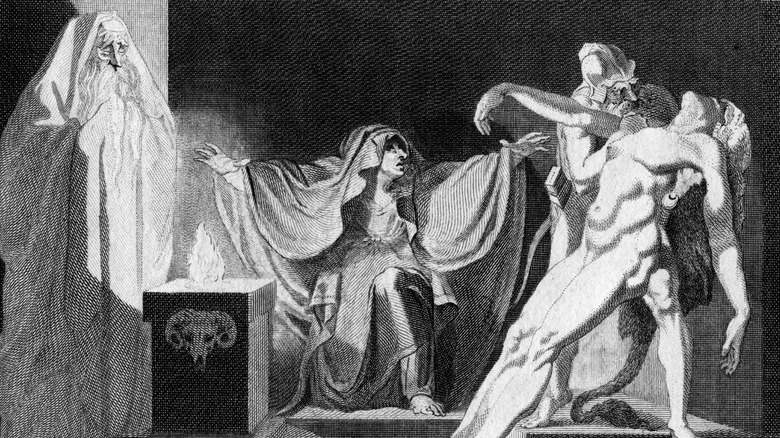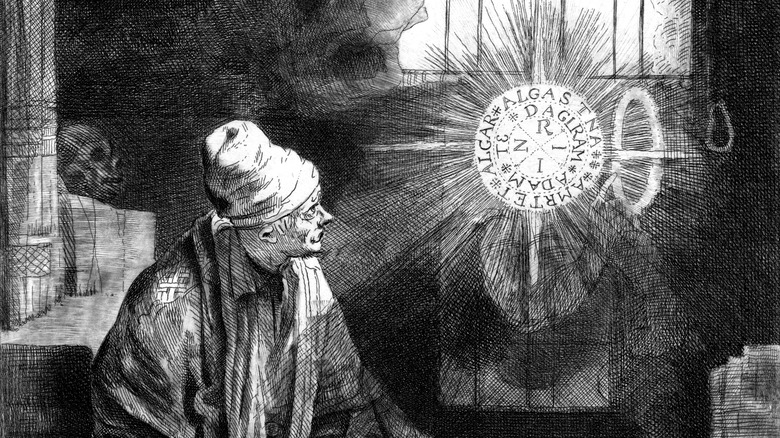The Surprising Role Religion Played In Necromancy
Necromancy, the dark art of reanimating the dead, has been a staple of horror and fantasy for centuries, from Odysseus's underworld adventure to Viktor Frankenstein's eerie experiments to the swarms of malicious magicians that act as enemies in today's RPGs. Necromancers attempted to communicate with the dead by summoning their spirit or raising their body to gain knowledge and power. Many imagine necromancers huddled in dark robes, making Satanic pacts as they carry out their dark deeds in crypts and graveyards.
Dealing with the dead was treated as a serious offense by Middle Age society, condemned by the Catholic Church and specifically shunned in the Bible, carrying the ironic penalty of death for its practitioners (via ReligionFacts). While these acts were looked down upon by the religious authorities and often the general populace, those who carried out necrotic acts required extreme dedication, and never sought out the power of the devil for their magic.
Necromancers had to be close to God
Even though the Church and Medieval society at large condemned necromancy, never have its practitioners engaged in Satanic pacts or worshipped the devil. According to Sciencia, necromancers believed that they could only communicate with the spirits of the fallen through the power given to them by God. Piety was necessary for the magicians, who needed to purify themselves with fasting, chastity, and prayer before engaging in any spells.
Necromancers were not unaware of the public and holy disapproval of their acts, but believed that their purity and concentrations achieved a state beyond good and evil. Necromancy was not always shunned: according to Brittanica, the souls of the dead were used by the Greeks and Egyptians as a "last defense" against evil spirits and magic. These traditions can explain why it was most often clergymen of all ranks who engaged in necromancy, rather than the roving bands of raving spell slingers we're more likely to imagine today.

